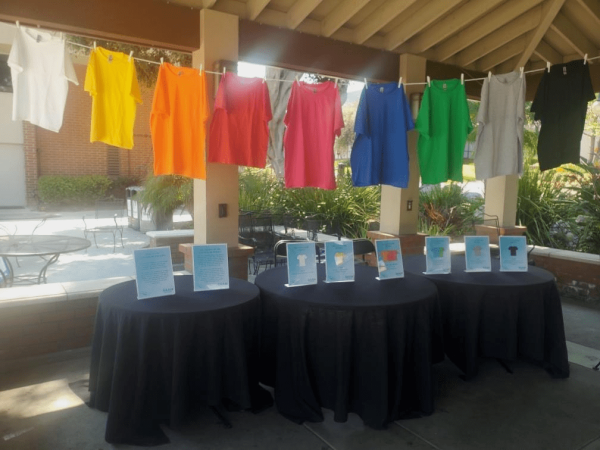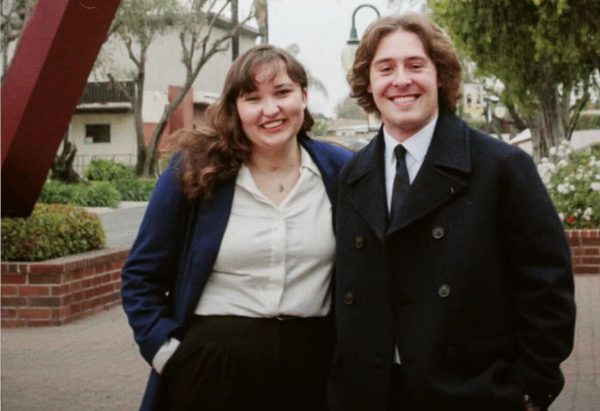Cash-strapped students rent textbooks
A new option for acquiring textbooks is gaining popularity: renting.
September 28, 2009
Textbooks are necessary for college learning, but they’re expensive, and college students are usually broke. But a new option is rising in popularity: renting textbooks.
Textbook rental companies like Campus Book Rentals provide students with an option cheaper than buying – even buying online. Campus Book Rentals was founded two years ago by Alan Martin, who felt the all-too familiar crunch of textbook prices all through college and grad school. Campus Book Rentals was created in order to lighten this burden. His company now boasts having served students from over 3,500 campuses nationwide.
“Prices are so much cheaper, and that’s a big incentive,” said Jase McCormick, campus book rentals representative.
This need/hate relationship between students and textbooks has been partly remedied over time with Web sites such as Amazon and half.com. However, rentals are often the cheapest option. Web sites such as Chegg.com and bookrenter.com also offer this convenient alternative.
“They make it all easy for you,” said Biola junior Keena Palacio, who had a positive experience with Chegg.
Palacio explained just how simple the process is.
The Web sites offer a search bar, where an ISBN or a keyword can be typed in. Once a textbook is selected, a student can see his or her savings compared to actually purchasing the book, even before committing to buying it. Differing rental periods, such as semester, quarter, or summer, offer flexibility and the maximum value for students.
For Palacio’s statistics with computer application class, the required textbook would have cost $146 new on Amazon or $85 used. The listed renting price for the semester, however, was only $57, saving Palacio $89.
Palacio, who rented only three textbooks this semester, estimates saving $100-$150 total.
Depending on which site students rent from, shipping is usually free, or at the very least, a reasonable price. Shipping times, which understandably peak at the start of the semester, are estimated to be around three to five business days. Unlike other rental models, there are no membership fees for textbook rentals.
The return process for shipping is just as simple. The company includes a shipping label and an envelope with the textbook. Some sites provide the option of printing off a shipping label from their sites.
Most online textbook rental sites allow refunds for common problems students face. If a class is cancelled or a schedule changed, for example, students can benefit from a full-refund policy for up to 30 days, no questions asked.
Students are allowed to highlight in their books. If a student finds that they would like to add a rented textbook to their permanent collection, some Web sites are now offering the option of purchasing the textbook. Rental fees would be applied towards the purchase.
However, even Biola students who rent textbooks may end up frequenting the Biola Bookstore. McCormick acknowledged that, although they’ve managed to get about 90 percent of college textbooks students need, they are often unable to get custom editions and specialty books. In Biola’s case, this refers to the majority of the biblical studies textbooks.
Harry Edwards, bookstore manager, has heard about the newest textbook trend and welcomes it.
“Personally, I’m open to it,” Edwards said. “I don’t think it’s a bad thing.”
The economy, coupled with students’ desire to save, means students are penny pinching by resorting to other sources like textbook rentals. Edwards saw about a 4.5 percent decrease in sales between this August and August 2008.
Edwards said the bookstore has been considering adopting a similar renting model within Biola. Students would not only have the option of purchasing new and used textbooks, but also renting out textbooks for the semester.
There is no official decision or launching date yet. A few major challenges to be dealt with include the cooperation of professors, along with guaranteeing cost-effectiveness.
For now, the Biola Bookstore has made a commitment to sell as many used books as possible. Edward encouraged students to urge their professors to keep their current textbook editions rather than upgrading. If a book is kept on the booklist for the following semester, the bookstore is more likely to be able to buy textbooks back, saving students money.






